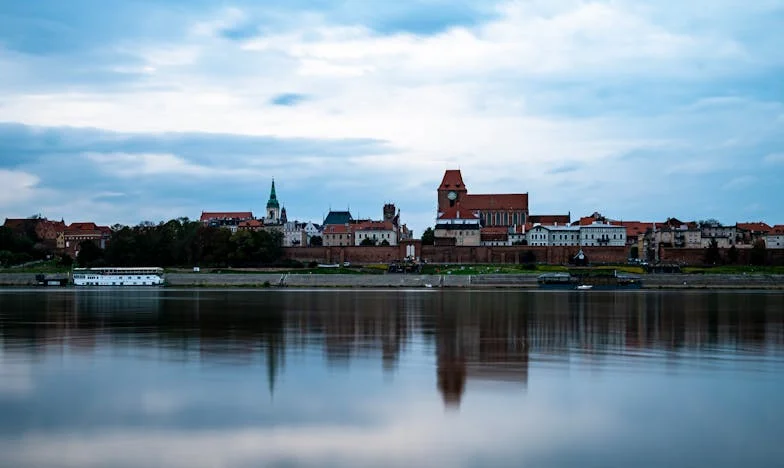The Weight of an Empty Room
“You left your keys, Mark. Why would you leave your keys if you planned to come back?” My voice echoed off the kitchen tiles, brittle and sharp as the broken mug at my feet. I knelt, swept up the porcelain pieces, and wondered if my hands were shaking from anger or heartbreak. Probably both.
The sun was setting outside the window, flooding the living room with that burnt-orange glow that always made the photographs on the shelf look warmer than they were. I stared at the picture of us—Mark grinning, his arm slung over my shoulder. My smile was real, back then. Before my mother’s death, before Mark became my everything, before he vanished like a pulled thread unraveling the last patch of comfort I had left.
“Kasia? You home?” My dad’s voice boomed from the hall, jarring me. He always used my full name—Katherine—but Mark was the only one who called me Kasia. I wiped my eyes before Dad could see. He hated tears, said they were useless, but it never stopped him from using them as a weapon in every argument we ever had.
“Yeah, Dad. I’m here,” I called, forcing my voice steady. The door slammed behind him. No keys. Only Mark’s keys sat, untouched, in the blue ceramic bowl by the door. Sometimes I picked them up, pressed the cool metal to my lips, like maybe I could conjure him if I just believed hard enough.
Dad shuffled into the kitchen, his hands full of grocery bags. “You eat yet?”
“Not hungry.”
He dropped the bags with a sigh. “You can’t keep doing this, Kat. He’s not coming back.”
I turned away, picking up the mug shards, letting the sharp edge prick my thumb. “You don’t know that.”
“I do. I know men like him. I know what it’s like to run from problems. Your mom—”
“Don’t,” I snapped, spinning around. “Don’t drag Mom into this.”
He stared at me, jaw clenched. “You think he filled the space she left? Maybe for a while. But, honey, nobody can fix you except you.”
I wanted to scream. I wanted to smash every mug in the cabinet. Instead, I picked up Mark’s keys, squeezed them so tight they bit into my palm. “You don’t get it. You have your job, your friends, your stupid golf. You never had to sit here alone every night.”
Dad grabbed a beer from the fridge and popped the tab. “I lost her too, you know.”
But he didn’t. Not like I did. Not in the way a daughter loses a mother, or in the way a heart breaks twice—once for death, once for abandonment.
That night, I lay in bed, the house silent except for the hum of the fridge and the occasional creak as it settled. I remembered the first time Mark stayed over, how he tiptoed through the hallway, afraid of waking Dad. The way he folded his clothes neatly on the chair, his sneakers lined up by the door. Always careful, always polite. Until the day he wasn’t. Until the day he left, leaving only his keys and a note that said, “I can’t be what you need.”
I called him, of course. Left voicemails. Texted. I even waited outside his work, but he never showed. His friends said he went back to Ohio, back to the family he never talked about. I checked Facebook every day, scrolling through his old photos, searching for a clue. Nothing. It was as if he’d never existed.
The days blurred together. I started showing up late to work, snapping at my coworkers. My best friend, Sarah, tried to pull me out of it. “Let’s go to the movies,” she’d say. “Let’s get drinks. Let’s do anything but sit in this mausoleum you call an apartment.”
But I couldn’t. The thought of leaving meant admitting he wouldn’t be there when I came home. That the shoes in the hallway would always be just mine.
One night, Sarah barged in with a pizza and a bottle of cheap wine. “You’re eating, you’re drinking, and you’re telling me what the hell happened.”
I broke down. Ugly, snotty, hiccuping sobs. “He was supposed to stay. He promised, Sarah. After Mom died, it was just—he made it bearable.”
She held me tight. “Sometimes love isn’t enough, Kat. Sometimes people leave, and the world keeps spinning.”
“But why does it feel like it stopped for me?”
She didn’t have an answer. Nobody did.
Weeks turned into months. I threw myself into therapy. I started running in the mornings, pushing my body until my lungs burned and my legs wobbled. Dad and I still fought, but he tried harder—making pancakes on Sundays, leaving little notes on the fridge. “Have a good day, Kat.” “Proud of you.” Little things, but I noticed.
One morning, I came home from a run to find the front door ajar. My heart lurched. For a split second, I imagined Mark standing there, smiling sheepishly, holding a coffee. But it was just Dad, fixing the hinge.
“You okay?” he asked, not looking up.
I nodded. For the first time in a long while, I meant it. I walked past Mark’s keys—still in the bowl—and finally, I didn’t pick them up.
Months later, I boxed up his things. The sweatshirt he left in the dryer. The photo of us at the state fair. His keys. I drove to the river and tossed them, one by one, into the water. With every splash, I felt a little lighter. Not healed, not yet—but lighter.
Sometimes, at sunset, I still glance at the door, half-expecting a miracle. But I’m learning that empty rooms aren’t always a punishment. Sometimes, they’re an invitation. To grieve. To heal. To fill the space with something new.
I wonder, does anyone ever really get over being left behind? Or do we just learn how to live with the echo?
